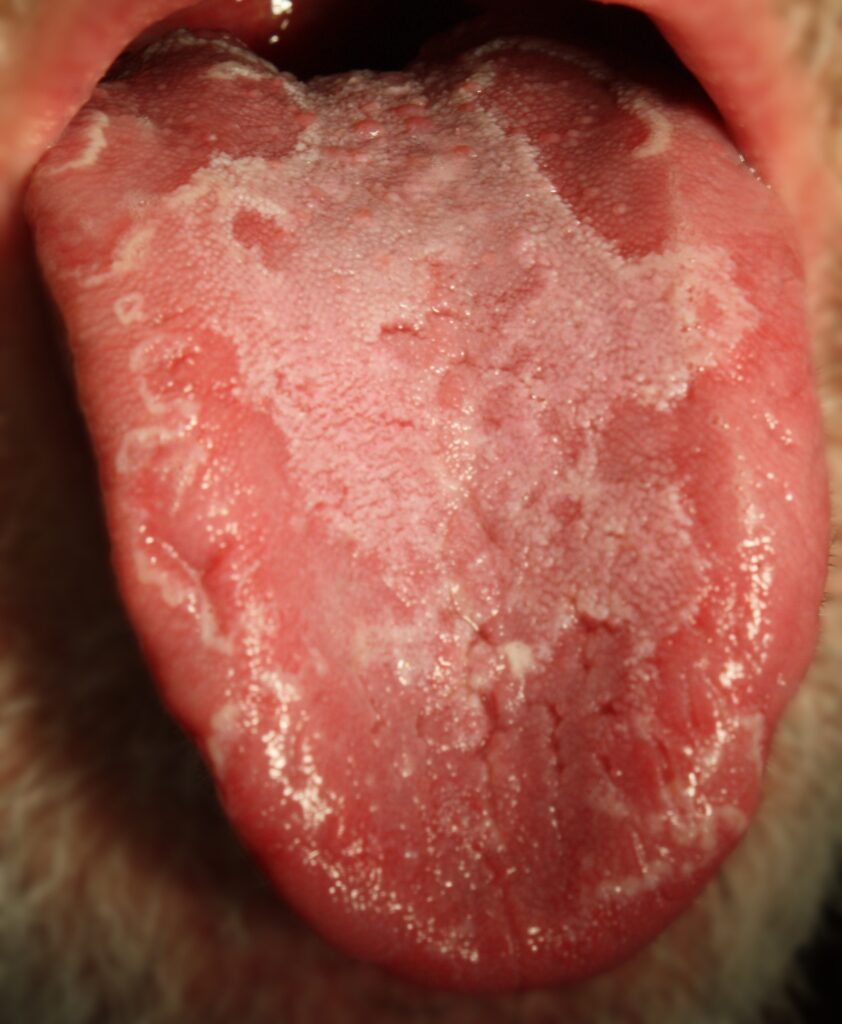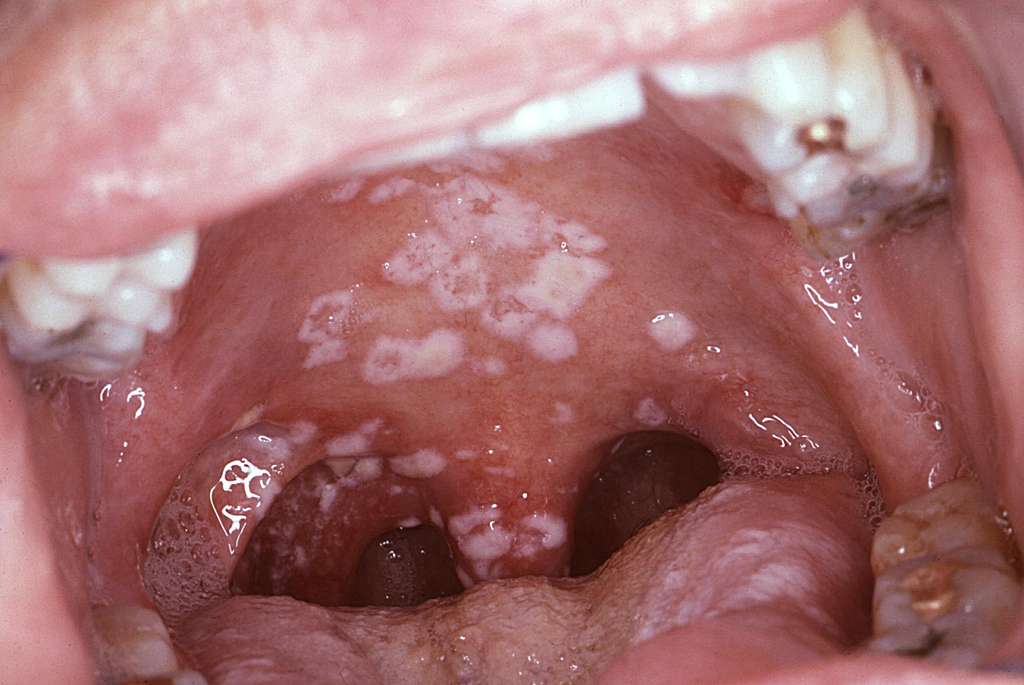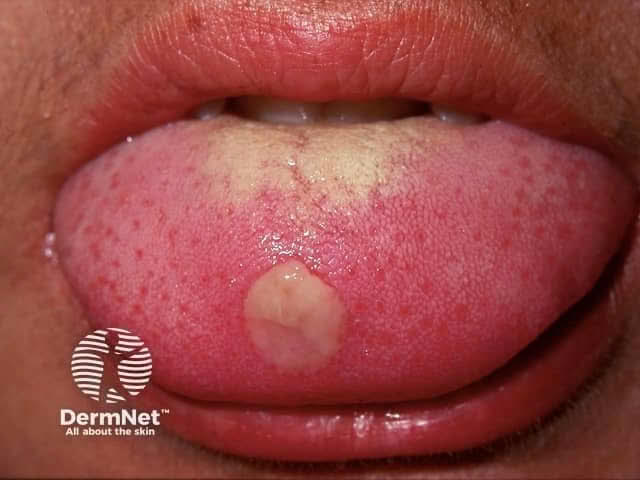If you look at your tongue in the mirror and see a white coating, you shouldn’t panic! It’s a common condition and must not be a cause of worry. In most instances, it’s benign, although occasionally there may be an underlying health problem that requires medical attention.
In this post, I will discuss the causes of white tongue, starting from the daily ordinary habits, to more important medical or health conditions. Scientific evidence will be explored on how to treat them ‘either by implementing simple measures, or by using medical therapies or remedies. In addition, I will highlight the effective methods for prevention.

What is a white tongue?
White tongue is not a disease on its own. It’s a symptom that results from the accumulation of bacteria, food debris, dead cells and yeasts on the tongue surface. There are small, tiny projections on the tongue surface, called “papillae”. These may swell if get inflamed, and this results in trapping of food debris and bacteria in the spaces between these projections. This will eventually give the tongue a white “coat”.
Usually, this change in tongue appearance is temporary. It can be managed by simply scraping it off and by keeping adequate oral hygiene. As I mentioned, it’s important to identify the possible causes to know when a doctor should be sought.
Common causes of white tongue:
There are several causes that can be classified as follows:
1- Poor oral hygiene:
-The most common: Lack of adequate cleaning and brushing of teeth and tongue allows bacteria and food debris to build up on the surface of the tongue and in between the tongue’s papillae.
2-Dehydration and dry mouth:
If the spit (saliva) amount in the mouth is not enough to keep it moisten, this leads to dryness and makes it easier for bacteria to grow and to build up dead cells. A white tongue will then develop.
Causes of dryness of mouth: If you don’t drink enough water, or you are mouth breather, especially during sleep, this will result in getting your tongue dry. Other causes include using some medications like antihistamines, diuretics and high blood pressure medications and some diseases.
3-Diet:
-Soft food: If you eat soft food, your tongue won’t get properly cleaned. Soft food doesn’t give friction force to scrape the tongue surface, unlike if you eat hard chewable food.
-Sugars: The more sugars you consume, the more bacteria and yeast will grow in build-up on the tongue surface.
-Low fiber diet: Should you eat more fibers, your tongue will be cleaned during chewing/ by the hard fiber pieces.
4-Smoking and alcohol:
-Irritation: Smoke and its chemical constituents irritate the tongue papillae, causing inflammation and swelling. This acts as a trap for debris to build-up.
-Dryness: Alcohol causes dryness of mouth, which favors bacterial growth and white coating.
-Change in the mouth environment: Both smoking and alcohol alter the kinds of bacteria present in the mouth. More harmful bacteria and yeast will grow.
5-Oral thrush (Candida):
-Yeast infection. This is a yeast infection.
The yeast “Candida” is naturally present in the mouth, but in limited way.
If the number of candida cells increase it will coat the tongue with white patches.
These patches are thick and cheesy and cover the tongue surface and inner parts of the cheeks.
They are painful and may bleed when they are scraped off.
-Risk factors: The risk is higher in infants and elderly people, wearing dentures is another factor that predisposes to white tongue.
Patients with diabetes, low immunity (as a result of AIDS, or chemotherapy) are also at a big risk.
Using antibiotics can kill good bacteria, which give yeasts the chance to grow and form white coating on the tongue.
Steroid sprays for asthma increases bacterial growth on the tongue if not washed after use.

6-Leukoplakia (white plaque formation):
These are thick white spots which may appear on the tongue surface, inner cheeks or on the gum.
They can’t be scraped off easily (unlike candida patches).
The causes of leukoplakia include smoking and tobacco chewing.
In some cases, the cause may be unknown.
Significance of Leukoplakia:
Importance of leukoplakia: It’s considered a precancerous condition. This means it may convert into cancer after a period of time.
For this reason, any white patches in the mouth that persist and can’t be easily scraped off should be seen by a doctor or dentist.

7- Oral Lichen Planus:
This is an inflammatory lesion of the inner lining of the mouth. It appears as fine white laces on the tongue or the inner part of the cheek.
Alternatively, it can be seen as whitish spots or painful reddish sores (ulcers).
Causes of Lichen Planus: It’s thought to be related to the immune system defect (i.e. an autoimmune disease), but the exact cause is still not known.
Treatment: There is no cure for Lichen Planus, but symptoms can be controlled by medications.
8-Geographical tongue:
This is a harmless condition, which appears as red spots with smooth surface (they look like islands), surrounded by white or yellow elevated raised edges.
It resembles a map, hence the given name.
These spots may change in shape, size and place over the tongue, by time.
They are painless, but may cause eating spicy or sour food intolerable.

9- Syphilis:
Syphilis is a bacterial infection that can rarely be the cause of white tongue.
When it’s the cause, it’s sexually transmitted, and the stage of the disease during which white patches appear on the tongue is called secondary syphilis.
It needs prompt diagnosis and appropriate treatment with antibiotics.

10-Other factors:
-Fever: Fever results in excessive evaporation of water from the tongue surface. When the tongue is dry, bacteria and debris accumulate and the tongue becomes white.
-Some medications: Besides the above-mentioned medications, there are others which can change the mouth environment.
-Mouth breathing.
When should you worry?
While most of times a white tongue is not indicative of a serious condition, and the white coating disappears with improved oral hygiene, it should be of concern if:
1- There is pain or burning sensation.
2- The white patches are thick. You can’t easily remove them (e.g. Leukoplakia).
3- Accompanying symptoms: If you have fever, unintentional loss of weight, persistent mouth sores, or difficulty in chewing or swallowing.
4- Non-healing: If white tongue doesn’t heal and continues for more than 2 or 3 weeks despite good hygiene, mouth care and adequate water drinking.
5- Suspicion of an important health problem like oral thrush, immunodeficiency or Leukoplakia.
6- Other changes:
The presence of lumps, sores or lack of smoothness of the tongue surface.
Treatment of white tongue:
Treatment of white tongue depends mainly on determining the cause of it.
1-Hygiene improving:
Cleaning with brush and thread. Brushing teeth at least twice daily, and cleaning with thread at least once.
It’s advisable to use toothpaste containing fluoride.
These daily habits help removing bacteria and debris from between your teeth.
Cleaning the tongue:
This is the most important thing to treat white tongue if the reason behind it is lack of adequate hygiene. Use a brush gently to clean the tongue surface from inside outwards or use a tongue scraper. This will help to remove debris effectively.
2- Adequate hydration:
-Drink enough water throughout the day to keep your tongue moist.
-Avoid drinks that cause dry mouth (such as alcohol and caffeine-containing drinks)
-Chewing gum or sugar-free sucking candy to stimulate spit (saliva) secretion and to keep moistening the tongue.
3- Using tongue scraper:
This tool is made up of plastic or metal. It’s effective for removing the white coating on the tongue.
It’s more effective than a toothbrush. You should use it gently from the inner part of the tongue surface and outwards.

4- Dietary changes:
-Consume more fibers. Fruits and fresh vegetables help scraping the tongue in a natural way.
-Eat soft diet and less sugar.
5-Additional home remedies:
Gurgling with salty water kills bacteria and treats inflammation.
Half teaspoonful of salt in a cup of warm water is sufficient.
-Baking soda: a paste made up of baking soda and water. You can use it to clean your tongue. It has both scraping effect and killing property for bacteria.
-Probiotics: Eat food rich in probiotics (yogurt with no added sugar) or food supplements that help restoring the normal healthy bacterial species on the tongue.
6-Medical treatment (by doctor’s prescription):
We use medicines for yeast infection (or anti-fungal) to treat oral thrush (candida).
These are in the form of gel or mouth wash (Nystatin), or as tablets (Fluconazole).
The treatment of Lichen Planus includes many preparations (gel and mouth wash) containing steroids, to alleviate pain and inflammation.
Monitoring Leukoplakia by a doctor is important.
A doctor may recommend removing these spots either surgically or by LASER, especially if there is a possibility of cancer.
Treatment of any other diseases is also important. Examples are diabetes, low immune system problems and syphilis.
Medications revision: The doctor should revise with you what medication you already take. Some medications cause dryness of mouth.
Changing dose may be necessary to minimize this unwanted effect.
7- Smoking Cessation:
If you stop smoking your tongue will become healthy and the chance of getting white tongue will be low. This is also true for alcohol.
Prevention of white tongue:
Prevention is always better than treatment. You can avoid the risk of having white tongue by following these steps:
-Keep good hygiene by cleaning your teeth and tongue regularly.
-Use tongue scraper.
-Drink plenty of water to keep your mouth and body hydrated.
-Keep balanced dietary habits, rich in fibers, with less sugar.
-Visit your dentist regularly, preferably every 6 months.
-Avoid smoking, tobacco products and alcohol.
Treat mouth dryness, if present.
Rinse your mouth thoroughly after using steroid sprays.
In summary, white tongue is a common health problem, with many causes.
Causes can be simple, like poor mouth hygiene, or more serious conditions.
You can be prevent it by good mouth care (cleaning, adequate hydration and balanced diet).
It should always be a priority to consult a doctor or dentist if white tongue doesn’t heal or if there are other symptoms.
Correct diagnosis and appropriate treatment are the keys for cure.

